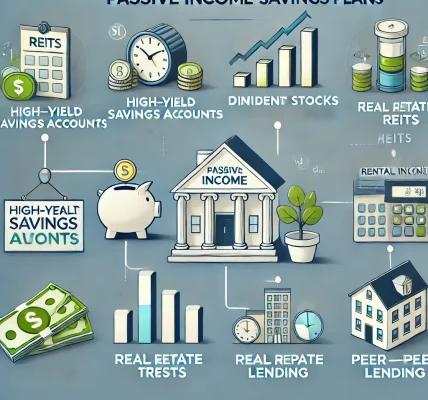Introduction
Freelancers and self-employed professionals enjoy flexibility and independence in their careers, but managing finances can be challenging. Unlike salaried employees, they don’t have employer-provided benefits like retirement plans, health insurance, or consistent income. To ensure financial security, freelancers must adopt smart saving strategies tailored to their unpredictable earnings. This guide explores the best saving plans and tips to help freelancers and self-employed individuals build financial stability and long-term wealth.
Understanding the Importance of Savings
Since freelancers and self-employed individuals don’t have a fixed paycheck, saving money is essential for:
- Emergency preparedness – Ensuring financial stability during slow business months.
- Retirement planning – Securing a comfortable life after work.
- Tax obligations – Setting aside funds for self-employment taxes.
- Business investments – Expanding and sustaining business growth.
- Healthcare and insurance – Covering medical emergencies and unforeseen expenses.
Best Saving Plans for Freelancers
1. High-Interest Savings Account
A high-interest savings account helps freelancers grow their savings with better interest rates compared to regular savings accounts. This is a great place to keep emergency funds while earning passive income through interest.
2. Fixed Deposits (FDs) or Certificates of Deposit (CDs)
Freelancers can benefit from FDs or CDs by locking in a portion of their savings for a fixed period. These accounts offer higher interest rates and ensure disciplined saving habits.
3. Recurring Deposit (RD)
A recurring deposit allows freelancers to contribute a fixed sum every month, helping them develop a systematic saving habit. It also offers decent interest rates with lower risk.
4. Retirement Plans and Pension Funds
Since freelancers don’t have an employer-funded retirement plan, they should consider options like:
- Individual Retirement Accounts (IRA)
- Self-Employed 401(k) Plans
- Public Provident Fund (PPF)
- National Pension Scheme (NPS)
These plans offer long-term financial security and potential tax benefits.
5. Tax-Saving Investment Plans
Freelancers can reduce taxable income by investing in tax-efficient saving schemes like:
- Government Bonds
- Mutual Funds (ELSS – Equity Linked Savings Scheme)
- Health Savings Accounts (HSA) for medical expenses
6. Automated Savings Apps
Using fintech apps that automate savings can help freelancers put aside money effortlessly. Apps like Digit, Chime, and Qapital round up transactions and transfer spare change into a savings account.
7. Gold and Digital Gold Savings
Investing in gold is a great way to diversify savings. Digital gold or gold ETFs (Exchange-Traded Funds) offer liquidity and appreciation over time.
8. Emergency Fund Account
Freelancers should have at least 3-6 months’ worth of living expenses in an emergency fund. This provides a financial cushion during lean business periods.
Smart Saving Strategies for Freelancers
1. Create a Budget and Stick to It
A budget helps freelancers track income and expenses, ensuring they save a fixed percentage every month. The 50/30/20 rule can be useful:
- 50% – Essential expenses (rent, bills, food, etc.).
- 30% – Lifestyle expenses (entertainment, travel, etc.).
- 20% – Savings and investments.
2. Pay Yourself First
Before spending on expenses, freelancers should transfer a portion of their earnings into savings accounts. Automating this process ensures consistent savings.
3. Separate Personal and Business Finances
Maintaining separate bank accounts for personal and business finances helps track expenses, savings, and tax deductions efficiently.
4. Diversify Income Streams
Relying on a single source of income is risky. Freelancers should explore multiple income streams such as affiliate marketing, online courses, or passive investments to ensure steady cash flow.
5. Plan for Taxes
Self-employed individuals must pay self-employment taxes. Setting aside at least 20-30% of income for taxes prevents financial stress during tax season.
6. Invest in Skill Development
Investing in upskilling ensures career growth and higher income potential, allowing freelancers to save and invest more effectively.
Conclusion
Freelancers and self-employed individuals must take proactive steps in financial planning. By leveraging high-interest savings accounts, retirement plans, tax-saving investments, and automated savings tools, they can secure their future. Developing disciplined saving habits and budgeting effectively ensures financial stability even in unpredictable work conditions. Start saving today to build long-term wealth and financial independence!




